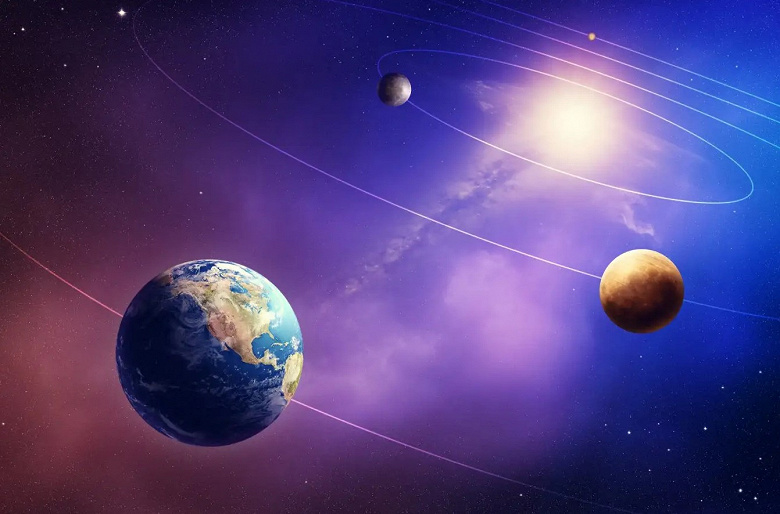Study of drill cores reveals a connection between the gravitational attraction of Mars and global climate change
Researchers say Mars' gravitational pull may be strong enough to agitate Earth's oceans, displacing its sediments in a 2.4-million-year climate cycle.
It has long been known that fluctuations in the Earth’s orbit around the Sun affect the planet’s climate, and these cycles operate with periods measured in thousands of years. Adriana Dutkiewicz of the University of Sydney and her colleagues announced that they had discovered a «Great Cycle» lasting 2.4 million years, which they believe is controlled by Mars and influences currents in Earth's oceans for at least 40 million years.
Evidence for this cycle comes from nearly 300 deep-sea drill cores that revealed changes in the deposition of ocean sediments. Oceanographers expected sediment to settle in stable layers during periods of stable ocean currents, but unusual currents and eddies have revealed accumulation in other regions.
According to the team, the absence or interruptions in precipitation coincide with periods when Mars' gravity exerts its greatest force on Earth, subtly affecting our planet's orbital stability. This changes solar radiation levels and climate, resulting in stronger currents and eddies in the oceans.
Team member Dietmar Muller, also at the University of Sydney, admits that the distance between Earth and Mars is so great that it is difficult to imagine there being any significant gravitational influence. «But there are many factors that can enhance even minor changes. The impact of Mars on the Earth's climate is similar to the butterfly effect, — he says.
Benjamin Mills of the University of Leeds (UK), says drill cores provide evidence for the existence of «megacycles» in global environmental change: «Many of us have observed the result of these multimillion-year cycles in a variety of geological, geochemical and biological records, including during the "explosion of life" during the Cambrian period. This work helps to reinforce these ideas of environmental change», — he says.
But Matthew England from the University of New South Wales in Sydney says that while he believes the study contributes to the understanding of climate cycles at geological scales, he is not convinced by the paper's findings. «I am skeptical about the connection with Mars, given that its gravitational pull on Earth is very weak – just one millionth of the sun. Even Jupiter has a stronger gravitational influence on the Earth», — he says.
England also notes that even if Mars does have an effect, it is negligible compared to climate change caused by man-made factors.

